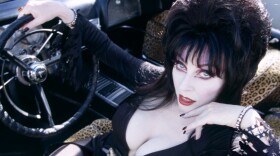Tamara Lindeman has the kind of mind that can turn a toy keyboard into a cosmic event. Sitting down to talk about Ignorance, her 2021 album as The Weather Station, she’s soft-spoken but precise—every word a small revelation, every aside a rabbit hole. “I started writing on this tiny keyboard,” she says. “I didn’t even know what I was playing. Which was great. I think ignorance can be freeing.”
That theme—unknowing, unlearning, undoing—runs through the whole record. If her previous, self-titled album was a lush, introspective folk piece, Ignorance is something else entirely: pulse-driven, widescreen, and full of nervous motion. “The last one grew out of folk music—people in a room together, loose rhythm, breath and space,” she says. “This time I wanted bedrock. I wanted the drummer to set the time. I wanted rhythm to be emotional.”
It is. The album moves like something alive and restless, somewhere between Talk Talk and Joni Mitchell’s Hejira, yet still distinctly hers. Lindeman laughs at the idea that it’s dance music. “I got enamored with how emotional straight, propulsive rhythm can be,” she says. “Before, I didn’t hear it that way. Now I do.”
Part of that shift came from being surrounded by Toronto’s avant-jazz community. “Everyone I know there went to jazz school,” she says. “They’d never call what they do jazz, but it’s complicated music. They’re constantly in dialogue with rhythm and dissonance. That’s the scene I go see, so it made sense to invite them into my world.” She hadn’t even heard Bowie’s Blackstar when people started comparing Ignorance to it. “That keeps coming up,” she laughs. “I guess I should finally listen.”
The record’s arrangements are intricate and strange, the kind that sound effortless only because they weren’t. “I did everything the hard way,” she admits. “I tried to program the songs as MIDI demos—like, really force a band to play what I’d sequenced. It was ridiculous. I lost months to drum machines. But that process taught me how to think about arrangements differently.” Some of those experiments survived intact, she says, like the skeletal pulse of “Robber” and the lush strings that weave through “Where the World.”
And then there’s her pivot from guitar to piano—actually, a child’s keyboard with built-in beats. “I’d hit a wall on guitar,” she says. “I’d been finger-picking for years. So I tried piano and suddenly all these pop songs came out. It was like opening a window.” She grins. “It’s funny—since then I’ve learned theory, and now I never accidentally write a 1-4-5 progression. Back then I didn’t know what I was doing. That ignorance is the reason the songs feel so open.”
The title, of course, carries heavier weight. The word “ignorance” threads through the record not as an insult but a diagnosis—personal, political, planetary. “I was reading about the climate crisis,” she says, “and it was like this veil lifted. I realized so much of our society runs on denial. We behave like the future will look just like the past, and it won’t.” Writing became a way to process that vertigo. “I’d start a song and think, ‘Is this about me? Or the world? Or both?’ I wasn’t sure where my own feelings ended and everyone else’s began.”
When the album finally arrived in 2021—two years after it was written—its timing felt eerie. “I kept hearing lines that hit differently because of the pandemic,” she says. “Like, I wrote about dying in ‘Atlantic,’ and suddenly that lyric felt loaded. But the record still made sense. Maybe more sense.”
She talks about art as clairvoyance, how songs sometimes see around corners before their writers can. “It’s not that I knew what was coming,” she says, “but sometimes the subconscious is a few miles ahead. You catch up later and realize you’ve been forecasting your own world.”
Even the pop sensibility of Ignorance carries a kind of philosophical weight. On “Tried to Tell You,” she sings, “Only fools believe this is what songs are for.” It’s a sly wink at the idea of music as messenger. “I was thinking a lot about what songs are for,” she says. “I love weird, esoteric music. But I also love how a simple melody can travel—like you hear it coming from a car window or in a grocery store, and it sneaks into your heart. That’s the Trojan horse. That’s pop.”
For someone so often labeled cerebral, she’s unguarded when talking about emotion. “Pop songs are how we communicate feelings at scale,” she says. “You can smuggle real sentences into people’s hearts.” That’s probably why Ignorance—an album about denial—feels oddly comforting. It sees the cracks and still chooses beauty.
She laughs about fans calling the record cinematic. “I do see songs like landscapes,” she says. “When I’m arranging, I imagine zooming in on a patch of ground—branches, leaves, layers. Everything moving in different directions. That’s what I want the music to feel like.”
Watch the interview above and then check out the videos below.






